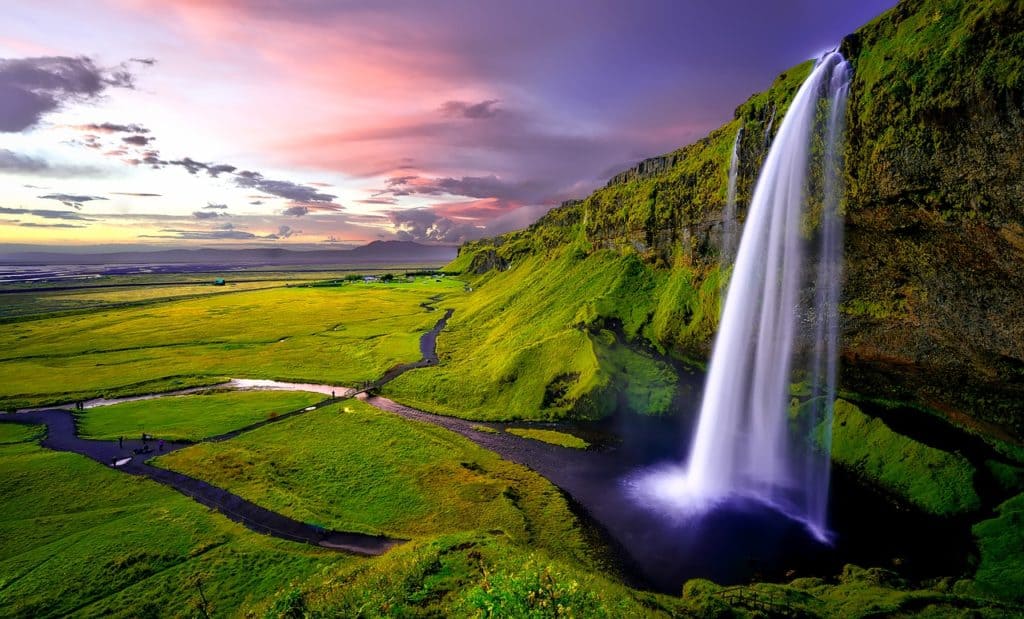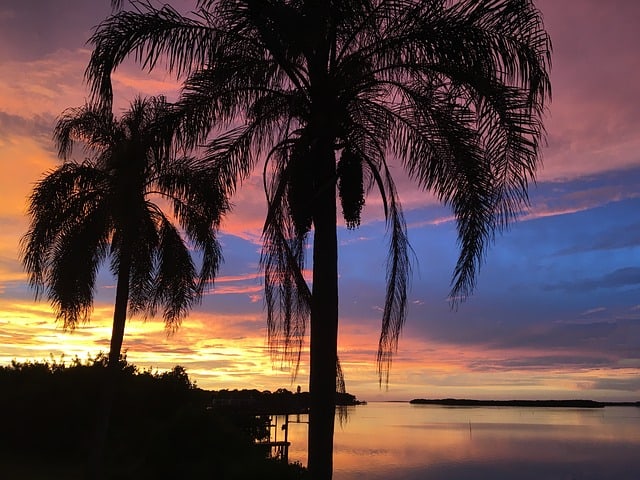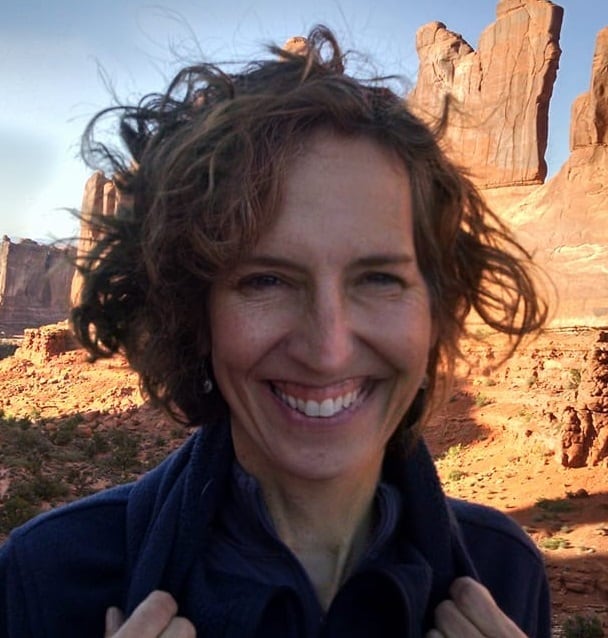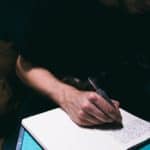I Don’t Speak Icelandic
– Nonfiction by Jenny-Lynn Ellis – March 7, 2019
Runner-up in the Dreamers Creative Writing Contest: Stories of Migration, Sense of Place and Home

“Eg tala ekki Islensku,” I say, with a perfect accent: “I don’t speak Icelandic.” It’s the sentence I utter most often in my mother’s language, a tongue that exists for me as a current of longing, growing fainter and more distant with time. Youngest of my mother’s seven children, and only one of two born in the U.S., I heard enough Icelandic as a child to absorb its essential music without learning to speak it. Yet I dream in Icelandic, and I hear my mother’s voice singing the prayer “O Jesu Brodir Besti” as she tucks my sister and me into bed. My American father, who lived on “the rock” for a decade and married two Icelandic women in turn, spoke the language with cheerful fluency. He always called me “Yenny,” as my name is pronounced there.
The Duty-Free clerk at Keflavik Airport asks me, after I greet her in the mother tongue, “Where are you going?” I respond to her, in Icelandic, “I’m going home to Denver.” She tells me, “Oh, I wish I were going to Denver today!” I can’t understand her next question, and her Nordic features register surprise when I finally confess: “Eg tala ekki Islensku.” She switches to English and compliments my accent. Once, in an Icelandic bathroom, as someone starts to open the unlatched door, I blurt out the sound, “upna blaikt,” with no clue what it means. But, over coffee at the café near Gullfoss, my older brother reassures me that I politely said “in a blink,” meaning “just a sec.” “After all,” I tell him, relieved, “eg tala ekki Islensku.” “Eg tala ekki Islensku” is a fluently expressed fact, a confusing dodge I make as the conversation gains depth. It is also a statement of failure as a daughter and a sister, a half-Icelander who turns out to be just another monolingual American.
Every year, my connection to my mother’s homeland fades at a glacial rate. If we, my father’s younger daughters, had been raised in Iceland, our last name would be “Jimmisdottir,” daughter of Jimmy. My older sister Kristin, who I don’t remember ever speaking Icelandic, signs her cards and letters “Kristin J,” in a flow of bold cursive. As an infant, Kristin was adopted by my father and his first wife, while our mother and her first husband had my two older brothers and my oldest sister. When they met in Reykjavik, my parents had four children between them. Kristin gained her third and final mother when my parents got married in 1960. Together, they had three baby girls over the following six years. Kristin held the unlikely center of our blended, half-American, half-Icelandic family. Two older brothers and an older sister, left by their Icelandic father when he left my mother. Three baby sisters. And Kristin, floundering, in between.
***
A scale sits on the flour-strewn counter-top. My mother opens an old cookbook, its pages smudged here and there with butter fingerprints. She sets its cracked green spine on the counter. A white apron tied around her waist, she looks down at a cake recipe of her mother’s, hand-written in Icelandic. Instead of words, I see swirls and curves of fading ink. Mamma whips egg whites into a bowl, and she weighs flour—not in ounces, but in grams–on the small scale she has carried all the way from home. Her sewing circle is meeting today. Fancy ladies will eat this cake and knit, their needles clicking through sheep’s wool to the rhythm of Icelandic conversation, the trill of their laughter itself made sharper in the absence of round, English words. I sit outside the swirl of their gossip and cigarette smoke.
Another day soon after, on a morning before Christmas, my three oldest sisters are making cookies. The recipe is stamped onto the yellow plastic of a Nestle’s chocolate-chip bag. Kristin’s unmusical voice reads out instructions in English, the ingredients measured in cups rather than weights. She laughs when I try to sneak chocolate chips from the bag and metes out tastes of batter to me in dabs. That night, Mamma plays a record of Icelandic Christmas hymns, the words eluding me as joined voices rise and fall.
***
In high school, Kristin gets suspended for smoking—she ditches classes and answers to no one. When she finally graduates, she packs a battered blue suitcase and leaves for Iceland. In an attempt to save her troubled daughter, my mother has enrolled her in “husmodir skola”: housewife school. After a long winter learning to clean house and make “plokkfiskur,” she comes home to Mamma’s turquoise kitchen. She comes back and teaches me how to add fragrant oregano to a pan of fried tomatoes and scrambled eggs. “I’ll go back and marry an Icelandic farmer,” Kristin says. But she never gets married. She never has children. She leaves again, for nursing school in Chicago. After we move to Florida in 1980, she follows, and works in a nearby hospital. Almost every day, Mamma toasts Swiss cheese and sliced ham in sourdough bread for her, until the edges of the cheese are brown and crisp. “This is the best,” Kristin says. “I can never make it like this at my house.” Mamma loves feeding this rail-thin daughter whose long limbs float in a white nurse’s uniform, whose acne scars and nicotine pallor shade high cheekbones.

On a visit to Florida in 2018, I pedal a blue cruiser to the bridge linking the Dunedin Causeway to the mainland. The calm water of St. Joseph’s Sound is dotted with small islands. When I lived here during high school, this seashore offered me refuge from my mother’s night time tirades, sometimes conducted in a language I was grateful not to fully understand. I answered her alcohol-fuelled attacks with dismissive silence and a blindness to my own percolating rage. Decades later, my mother, sober and serene, would call me from the same stretch of beach. “I was thinking about you and want you know how beautiful the sunset was on the water tonight.”
On a patch of beach just before the bridge, a green bench faces the water and bears a plaque that reads “From the Icelandic Ladies of Dunedin.” Friends and relatives who visited my parents over the years had migrated from Iceland to this coastal town. Loved ones converged here every winter, browning their pale faces and gathering for formal parties. Condominium clubhouses overflowed with Icelandic during birthdays and Christmas.
Near the top of the bridge, a dignified woman stands aside on the narrow path to let me pass. Lean and petite, her chin held up almost imperceptibly, she has a flush of color on her cheeks and intelligent eyes. A name leaps out of my mouth with a perfectly rolled “r”. “Erna!” I call out. I lean the bike against a railing as green water churns in the channel below. I know this woman’s name isn’t Erna, that my memory had retrieved a generic Icelandic name for a friend of my mother’s. She turns to me with a puzzled smile.
“It’s Yenny,” I tell her, in Icelandic. “How are you?”
“Yenny! Hallo!” She smiles and speaks to me in Icelandic, saying something about Facebook and how big my boys have grown. I hear the beautiful rhythm of my mother’s voice in hers, but understand only about half of what she says. “Eg tala ekki Islensku”: my standard response. She thinks I am joking, and laughs as we hug. Feeling muscular in my arms, she wears delicate gold earrings and pretty sandals. Her voice is music, the clicking song of my childhood, but the words blend together incomprehensibly. I watch her eager face, and wait just a beat too long to confess to her my lack of comprehension.
“I really don’t understand what you are saying,” I tell her, coming to the end of my linguistic rope. I feel far away from my ideal of daughter-hood, of devotion to my mother’s country and her language, as the woman I’ve called Erna, who isn’t Erna, switches to English. I admire her dignified bearing. Nothing casually American or slouchy in her.
“I am on my way home,” she tells me, in the distinct way Icelanders use the word “home,” with a capital H, to refer to Iceland. “I go Home on Thursday.” The sun beats down on us as my mother’s friend tells me that she is 81. I think of my mother at that age, and of her frantic attempts to escape her memory care unit. Kristin and my other sisters were on hand, but I lived my far-away life in Denver, interspersed with visits here to Florida. Listening to Erna’s elegantly accented English as we say goodbye, I want to weep at how many of my mother’s words have gone unsaid, and how Kristin’s stories, too, are lost.
***
On a cloudy day five years earlier, we five sisters park at this causeway beach and wade up to our ankles in sea-grass to send my mother’s ashes on their planned transit south, then north. My mother has asked us to entrust her ashes to the Gulf Stream, which will convey her remains south past Clearwater and around Key West. From the southern tip of Florida, they will ride the warm current north into the Atlantic, then home to the to the fishing village of Isafjordur, where Mamma was born and raised, where she skinned her knees and birthed my older brothers.
This Dunedin seashore—like Iceland–is a place I visit and love that doesn’t belong to me. As I swim in that placid Florida water, I see liquid lines of sunlight illuminating bone-white fragments of sea shell. And I think about Kristin–how, despite her hard-won recoveries from anorexia, from alcoholism–her body was never quite well. While my arms pull me through shallow water, I imagine the afternoon Kristin sat down in her tattered easy chair to read a book entitled “Daddy’s Girl.” She sets her pack of cigarettes on the table beside her while her cats purr. Then, for no obvious reason, her heart stops beating. At fifty-four, she dies peacefully of natural causes; her soul just gets up and walks away. Our sister finds Kristin’s body the next day, slumped in her chair.
So two years after our mother’s ashes floated homeward, my brothers flew from Iceland into a Florida cold snap, my sister in law remarking that the weather was “skitkalt.” I held my oldest brother’s arm like a rudder as we all walked to the center of Dunedin’s Hammock Park. Under the slanting shade of palms, we took turns digging with a small red shovel. There, so far away from the volcanic landscape of her first home, we buried our sister’s cremains in sandy loam.
Recently, I’ve seen my sister Kristin standing on a grassy hill in the Icelandic countryside. She stares toward the coast and smokes a cigarette in the dusky light of early winter. Every time this vision of her returns to me, I wonder why Kristin is here. I wait for her to do something, to become a character in a story or to translate some message for me, but she doesn’t speak. The small cloud of her cigarette smoke moves through the air, as the sea, just out of view, shifts and sighs. What keeps me returning to this scene? When I finally understand, Kristin turns to me and gives me her signature smile; it is part smirk, part satisfaction. Without translation, I see at last that Kristin is watching for Mom’s ashes, waiting to welcome her home.

About the Author – Jenny-Lynn Ellis
Jenny-Lynn Ellis holds a Master’s Degree in Political Science and also an MA in Counseling Psychology from CU Denver. As a student at Denver’s Lighthouse Writers Workshop, she has worked with essayist John Cotter and been coached by the poet Joy Roulier Sawyer. Her literary work appears on the Denver Orbit Podcast, and her blog can be found at themoreiwrite.net.
Jenny-Lynn lives and writes in Denver and in Fairplay, Colorado.
Read all the winning stories and poems from the 2019 Dreamers Writing Contest: Stories of Migration, Sense of Place and Home.
Did you like this non-fiction piece by Jenny-Lynn Ellis? Then you might also like:
The Red Jeep
No Pain, No Gain
Gelato and Frost
Recipe for Saying Goodbye
To check out all the non-fiction available on Dreamers, visit our non-fiction section!

Dreamers Writing Prompt Generator
Experience the power of simplicity with our unique writing prompt generator. Designed for writers who crave spontaneity and surprise, our tool delivers one meticulously crafted prompt at a time.

Top 25 Most Popular Manga Right Now
If you’re searching for the most popular Manga right now, this top 25 list is the ideal starting point, whether a beginner or enthusiast.